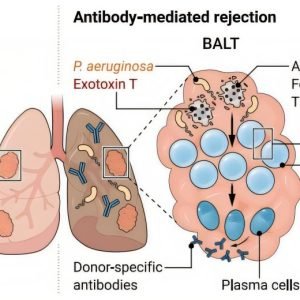
People with metastatic cancer who regularly report their symptoms via a home-based electronic monitoring system experienced improved quality of life, clinical outcomes and well-being, as well as fewer emergency department visits than those who didn’t file reports. Both groups had similar overall survival rates, according to University of North Carolina Lineberger Comprehensive Cancer Center researchers and their colleagues.
The results from the national multicenter study appeared in Nature Medicine on Feb. 7.
“Doctors and nurses are often unaware of symptoms and side effects that can worsen for cancer patients between office visits, leading to complications and unnecessary suffering,” said lead author Ethan Basch, MD, MSc, the Richard M. Goldberg Distinguished Professor of Medicine and chief of medical oncology at UNC School of Medicine and director of the Cancer Outcomes Research Program at UNC Lineberger.
“The patient-reported outcomes, or PRO, system was developed to enable patients to report their own symptoms and side effects and our study showed that PRO keeps care teams informed so that they can intervene promptly to help patients.”
The PRO-TECT randomized clinical trial was conducted in 52 community oncology practices in 26 states to assess the real-world impact of electronic PRO symptom monitoring on clinical outcomes compared to usual care.
The study enrolled 1,191 patients. To determine if symptom monitoring with the electronic PRO system improved outcomes, roughly half (593) of the patients were randomly assigned to the PRO arm and the remaining (598) were assigned to the usual care/control arm. Patients in the PRO arm could report their symptoms using a web-based program or an automated telephone system.
The median age of participants was 63 years, close to 17% never used the internet and about 26% of people were treated at rural practice locations.
Although there was no overall survival difference between people who used PRO and those who did not, which was the study’s primary outcome, there were numerous quality-of-life benefits:
- A 6.1% reduction in emergency visits for patients who used PRO compared to those who had usual care. There also was a 16% longer time before a first emergency visit with PRO compared to usual care.
- People in the PRO arm experienced a significant delay in deterioration of physical function (a median of 12.6 vs. 8.5 months), a 31% delay in symptoms (12.7 vs. 9.9 months), and a 28% improvement in health-related quality-of-life factors (15.6 vs. 12.2 months) compared to those who did not use PRO, respectively.
- Most patients felt that PRO improved discussions with their care team (77%), made them feel more in control of their care (84%), and would recommend it to other patients (91%).
- 91.5% of patients completed scheduled weekly symptom surveys.
“Electronic medical recordkeeping has been a bane for some physicians and patients who find it frustrating to navigate patient portal systems—mitigating those frustrations was a central consideration in configuring the PRO system in this study,” Basch said.
“PRO largely circumvents physicians and is managed by nurses and/or patient navigators, whose jobs often encompass symptom management and care coordination. The PRO systems have also proven very easy for patients to use, in terms of technical ability.”
The trial was designed to be generalizable across all cancer types and treatments. The study results, based on the diversity of the dozens of types of cancers represented in the patient population, confirmed this generalizability.
Although these are the final results from the PRO-TECT study, the investigators are planning sub-study analyses based on interviews with patients, nurses and doctors; evaluation of results based on various patient characteristics such as cancer type, race, and geography; and various methodological evaluations of the PRO technology.
“While there have been some studies evaluating the benefits of PRO for patients with earlier stage cancers who get chemotherapy, radiation or surgeries for their cancer, there is less conclusive evidence of benefit for PRO in non-metastatic disease, so we certainly hope researchers will take an interest in establishing more studies to provide evidence of that benefit,” concluded Basch.
More information:
Symptom monitoring with electronic patient-reported outcomes during cancer treatment: final results of the PRO-TECT cluster-randomized trial, Nature Medicine (2025). DOI: 10.1038/s41591-025-03507-y
Citation:
Electronic reporting of symptoms by cancer patients can improve quality of life and reduce emergency visits (2025, February 7)
retrieved 7 February 2025
from https://medicalxpress.com/news/2025-02-electronic-symptoms-cancer-patients-quality.html
This document is subject to copyright. Apart from any fair dealing for the purpose of private study or research, no
part may be reproduced without the written permission. The content is provided for information purposes only.






